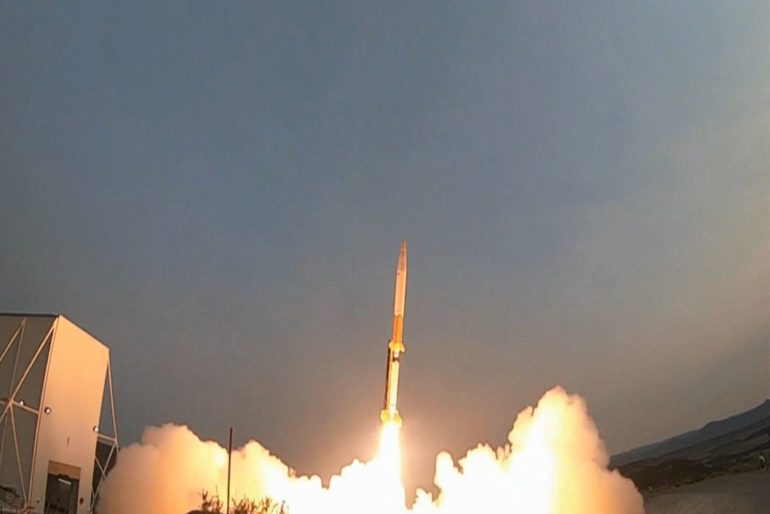Teledyne Brown Engineering, under the authority of the U.S. Army Space and Missile Defense Command (SMDC) Technical Center’s Targets Division at Redstone Arsenal, has successfully launched a Zombie target missile. The Zombie target is a part of Teledyne’s Tactical Range Air Defense Missile (TACRAM) contract under which the team designs and builds affordable, flexible target missiles to be used for testing advanced missile defense systems.
The U.S. Army successfully intercepted the Zombie target, a high-speed tactical ballistic missile target, as part of the Army’s Integrated Battle Command System Limited User Test at White Sands Missile Range in New Mexico.
Teledyne Brown Engineering has developed three variations of the Zombie missile using decommissioned U.S. Government-supplied rocket motors. The most recent variation, and the missile launched on August 20, 2020, is the two-stage Zombie “Black Dagger,” a realistic threat ballistic missile target for use in future testing of advanced missile defense systems. The Black Dagger consists of a Pathfinder Zombie target missile with the addition of a Mark 70 Terrier Missile booster.
The Black Dagger was launched from Fort Wingate Launch Complex-96 into White Sands Missile Range. The TACRAM launch team works closely with SMDC and White Sands Missile Range to execute all processes and procedures to conduct a safe and successful missile flight test.
“This program is a testament to our military’s resourcefulness and ingenuity,” stated Jan Hess, President of Teledyne Brown Engineering. “Together with SMDC, we were able to repurpose decommissioned rocket motors to create a missile that will enable the Army to test our nation’s defense systems.”
As Army and Missile Defense programs have an increased interest in reducing the cost of test and evaluation requirements, Teledyne Brown Engineering’s TACRAM program provides new, affordable solutions with threat-representative capabilities necessary to test the effectiveness of missile defense assets. The TACRAM contract, which continues to receive additional orders, is planned to continue through April 2025.
As part of Teledyne’s commitment to the future of missile defense, four student-interns from the University of Alabama in Huntsville were sent to the launch site to gain knowledge and experience that will be crucial in their future innovative efforts as part of Teledyne’s team.

